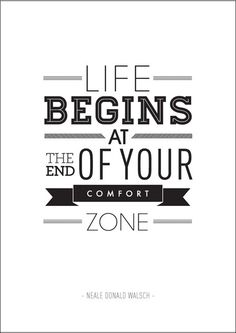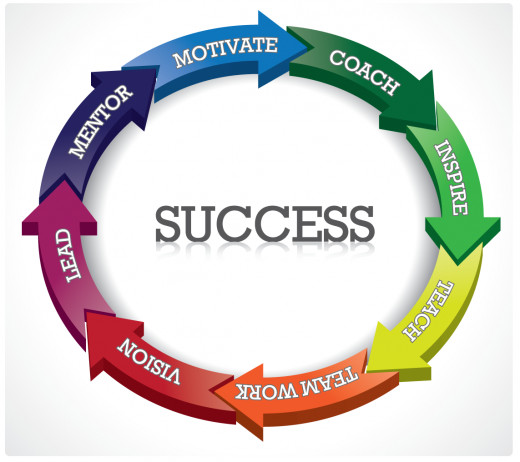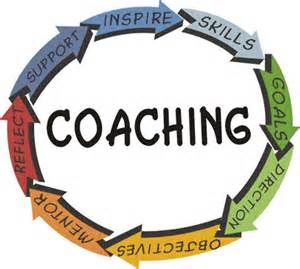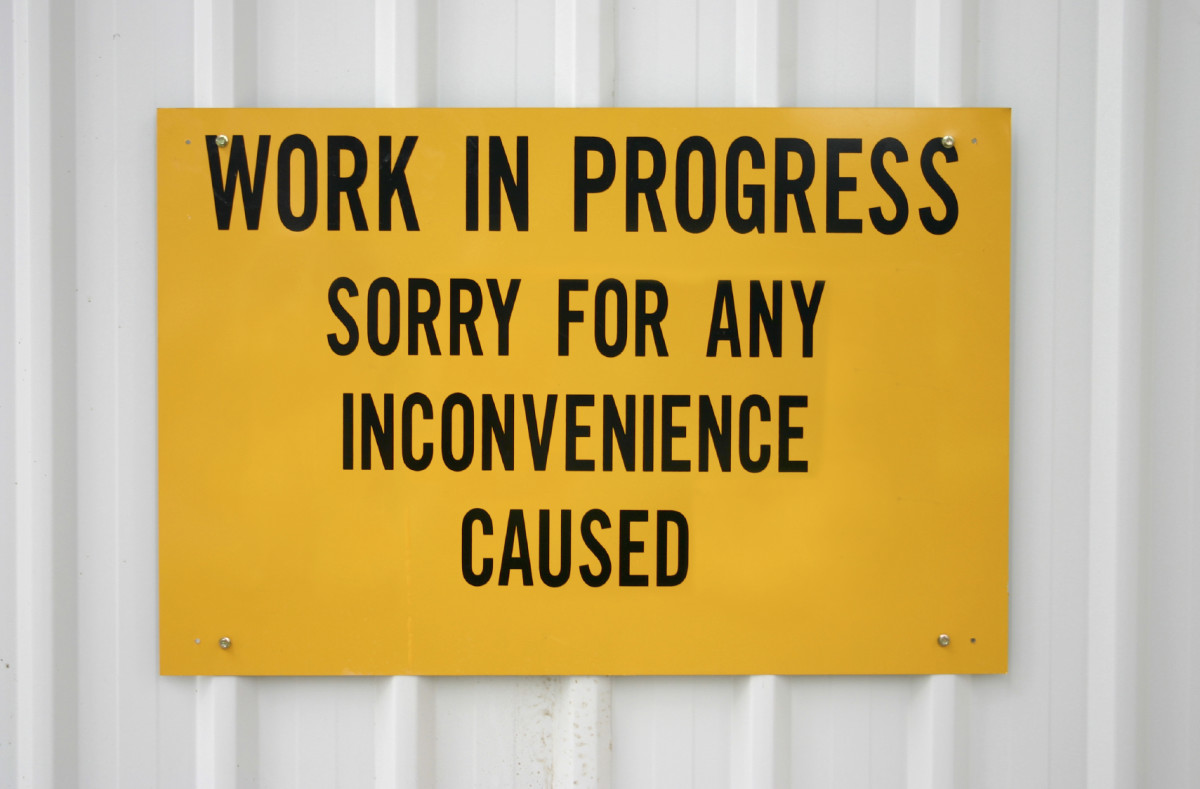What can you do with a degree in Social Work

INTRODUCTION
Just before finalizing the idea to divorce, I was seeing a Psychologist professionally. She pushed me into going back to school, so I started taking classes to get my Associates Degree. One of the very first classes that I took was "Public Speaking." Needless to say, I was not very interested in taking it, but it was a required class for all degree curriculums. I got out of my comfort zone and I took the class in my very first semester, and received a B in the class. My very first speech was on Migraine Headaches. (It was required that you already knew something about your topic.)
I already had a diploma from a Business School, which was obtained after I graduated high school, and was thinking about finishing it up, as the Extension Campus, where I was living at the time, was offering a Bachelors in Business Administration, this way I could transfer my Associates Degree to the Bachelors program. However, as I was going through my Associates Degree, I really enjoyed my Sociology class, and really disliked the teacher that was teaching the Micro and Macro Economics classes. Therefore, I switched my major to a basic Associates of Arts, and scheduled a meeting with the person to put in a package for the Bachelors in Social Work program at the University of North Carolina - Wilmington's Extension Campus in the town I was living in. I, first, needed the Intro to Social Work class that the Community College offered, so I took it, and received an A in the class. (Credit for this class had to transfer over to the Bachelors program.) Only 25 students were chosen to attend the Social Work program at the Extension Campus, and I was one of the 25.
I love everything about social work, and believe that it has always suited my very personality. I even love the history behind how it came to be, which I have done another hub about.

What is Social Work?
Social workers study social problems and human behavior. The basic number of social problems that social workers deal with in the world are, but not limited to:
- Poverty (worked: 2/2015 to 8/2018) and homelessness
- Child abuse, neglect (worked: 2011-2013), and exploitation
- Disabilities (worked: 2/2015 to 8/2018)
- Teen pregnancy, suicide, and other problems
- Family problems such as poor communication, divorce, (experienced in personal life and internship) and family violence
- Sexual violence
- Depression, anxiety, (experienced in personal life) and other mental health disorders
- Community problems such as crime, substandard schools, violence, and lack of jobs and community resources
- Supporting older adults (experienced in personal life)
- Assisting immigrants (immigrants in personal life) and refugee
- Working with individuals diagnosed with chronic or terminal illness
- Discrimination against individuals who have been oppressed in U.S. society, such as those living in poverty, women, racial/ethnic minorities, sexual minorities, and those with disabilities
- Substance abuse/addictions (watch family members and friends experience in personal life)
- Crisis intervention (such as natural disasters, mass shootings etc.)
Social workers work for change. Therefore, there are many people that would actually hate social workers, because they are for change. Personally, I see it as continuing to strive for something better. There is always room for improvement in everything. You would see social workers at:
- Schools
- Family Violence shelters
- Adoption Agencies
- Court system
- Hospitals and clinics
- Substance abuse treatment centers
- Advocacy organizations
- Government agencies
- For-profit
- Nonprofit
- Faith-based organization
- Community Centers
- Assisted living and long-term care facilities
- Homeless shelters
- International organizations (In which I have a cousin that works for)
- Military
Not all social workers work for the government. In fact, majority of social workers work in the private sector for nonprofit organizations, in for-profit settings, and for faith-based organizations. (I have always worked for non-profits, as intern, volunteer and now as an employee.)
There are other job titles that are used besides 'social worker,' such as; community organizer, mental health clinician or therapist, group home worker, rehabilitation specialist, teaching parent (Homeschooling parent, in which I was one), caseworker/case manager (Guardian Ad LItem 2011-2013), job coach (2015 to present), job developer, life coach, activist, researcher, professor, program manager/program supervisor, program coordinator, residential counselor, activity director, workshop director, and executive director. Social workers also work in the political arena as lobbyists, advocates, and legislative aides. Social workers empower their clients by providing resources they need to resolve their situations and problems.
Most social workers are caring and compassionate, but they need to be intelligent and have strong critical thinking skills to understand research, policy, and many theories guiding social work practice.
Careers in the Political Arena
There are social work occupations in the political arena, such as Lobbyists, Campaign Workers, Legislative Aide, Field Organizer, Policy Analyst/Researcher, Advocacy Organization, or Legislator or Public Official.
As a Lobbyist, you must know how to pass bills into law. I am sure that a Government class would be quite helpful, which I did take for my associates degree. Advocating for Organizations, maybe helping with fundraising. When I was a student, we had to be able to contact our State Representatives and Senators, which computers actually make quite easy. There is always another way to learn to advocate for yourself and/or your clients.
Careers in Community Practice
There are social work occupations in the Community, such as community planner, developer, and organizer.
Community Planners conduct needs assessments to figure out what kinds of gaps there are in services. They usually work in city and county government and nonprofit organizations..
Community Developers focus on affordable housing, schools, public transportation, health services, and recreational centers.
Social Work in Urban Communities tend to deal with high unemployment rates, substandard public schools, and high rates of poverty, crime and gang violence.
Rural Social Workers struggle with issues of accessibility and availability of services. They tend to do case management, information & referral, prevention and education, crisis intervention, and specialized treatment. (As an intern, I was more into information and referral. As a Guardian Ad Litem volunteer, I worked in case management. In my current employ, I work doing case management, but eventually I would like to get more into prevention and education.)
Since moving back to a rural community, I started reading more about Rural Social Work, as they say that it is not the same as doing social work in other areas. Social workers emphasized working with people in rural areas, but they gave little attention to their environment, which the environment does affect people's life. People can live in environments that make them thrive, or they can live in environments that make them fail. The Rural Social Worker must be able to function in order to meet the needs of people with a variety of problems in living their daily lives.
In the rural community, confidentiality can be an issue; as the Rural Social Worker is foremost a member of the community and secondarily a professional. "In a small community, dual roles are inevitable." Things that the social worker says or does are heard or observed by the larger community. They come into contact with staff, and community leaders on a regular basis. In the rural community, personal relationships among employees often bypass formal referral procedures and policy guidelines. Health and well-being are believed to be the result of the complex interplay between the physical world, our mental processes, our environment and the spiritual forces outside of us and the learned spiritual practices that become part of us. The mind, body, and soul are believed to have equal weight and must be balanced to achieve a state of well-being.
Rural social work involves working with and for people in and from rural areas to bring about change in their social functioning. The community deficits in the rural community tend to be: poverty, the need for transportation, poor housing, inadequate education, and health care systems, lack of employment opportunities, and shortage of professionals.
The formal resources in a rural community may include:
Federal: Social Security Administration, Medicare, Supplemental Security Income
State: Health Department, Department of Human Services, Area Agency on Aging, Medicaid programs for children and the aged and disabled, Protective and Regulatory Services, Mental health services, and Community care programs
County: Hospitals, Clinics, Nursing Homes, Subsidized Housing, Public works, Extension Services, Court Systems, Local Judges, The County Commissioners' Office, and Sheriffs' Office
Community: Political Councils, Fire Departments, Clinics, Assistance programs for housing, food, and utilities; libraries, schools, prescription medication assistance, and distance learning programs
Organizational: Industry associations, Labor Unions, Hospice, Employer-based services such as banks, credit unions, health services, employee assistance programs, child and adult day care, and family support programs
The common barriers in rural areas are: Geographical isolation, transportation, and lack of time for leisure and family activities.
It is said that, rural communities should affirm the heritage of their youth and encourage them to become culturally competent individuals. That's always the goal.
Leadership in Human Services Organizations
Administrator depends on the size of the organization and could be responsible for day-to-day operations of the organization, duties may include; service/program developing, hiring and supervising, recruiting, training and managing volunteers, fund-raising, communicating with the media, overseeing community outreach, budgets and payroll, managing information and communication systems, record keeping, procurement of supplies and materials, overseeing secretarial and housekeeping staff, security and parking and contract negotiation with other service providers. (When I was obtaining my business degree, I wanted to do payroll accounting, but now, in my current employ, I have to keep track of my own hours and mileage on my car. I manage my own schedule. Therefore, I have experience supervising, training and managing clients, time management, payroll, record keeping, and procurement of supplies and materials, and have overseen housekeeping staff.)
Executive Directors report to board of directors. They are concerned with making sure the organization's programs and services are appropriate with their mission and are meeting the needs of the community.
Program Manager is responsible for the creation and development of new programs, or be responsible for improving existing services.
Organizational Consultant grows organizations, or pursues new directions of funding in order to continue services to the community or expand the mission of the agency and offer new services.
Public Relations/Media Relations write and send action alerts regarding important issues up for vote in Congress or the state legislator; preparing written testimony, or an issue brief. Media tools include regular mail, e-advocacy, event sponsorship, television and radio, web pages, word of mouth, and print media. (I have volunteered to get the word out about when a local animal shelter needs donations and volunteers. It has worked thus far, I had heard that they started getting a few more volunteers over this past winter. I have also prepared a written testimony for my own divorce case, due to the fact that I live out of the state the divorce was finalized in.)
Volunteer Services Director handles the recruitment, retention, and professional development of volunteers, which is essential for organizations that rely on volunteers for a variety of activities. They must have skills in general management, budget development, grant writing, and fund-raising. (My Guardian Ad Litem Program Supervisor oversaw the Professional Development of all of his Guardian Ad Litem volunteers. I had hoped to do something like this, after I had heard that a neighboring county of where I live now, was trying to start up their own Guardian Ad Litem/CASA service. However, it was difficult to make contact with the email address that was provided.)
Fund-Raiser and Grant Writer tend to be contracted. Fund-raisers may oversee annual letter-writing campaigns, charity events, or other programs designed to raise money for organizations. Grant writers must be aware of many federal, state, and local organizations known to fund programs. Grant writers must be able to raise funds in a competitive environment. (I also have some experience with event planning, not my favorite thing to do, but planning charity events could end up making quite an impact on organizations that raise money for research on certain health issues.)
Careers in Research and Academic
For most of these listed below, you would need over an MSW degree. I think most of the below are self explanatory. They are pretty much at the University college level of employment.
It was during my Social Work program, at the Extension Campus, that I found out that Social Workers can wear many hats, especially in this arena. I had one teacher that was a Social Work Professor and Field Education Coordinator on campus, then she did her part time job as a social worker in mental health. I had another teacher who was a retired Colonel in the Marine Corps. He worked in Psychiatry. However, on campus, he was a Social Work Professor, who was promoted to Program Director. These two teachers', later were working together, doing research for a book. Another teacher, who actually taught the Research class, actually wrote his own textbooks that we used in the class. I must say, the idea of having a career where you can wear many hats is quite satisfying to me. For that reason, I do not think I made an error in judgment in choosing what I wanted to do with my life.
Social Work Researcher
Social Work Professor
Adjunct Faculty/Lecturer
Field Education Director/Coordinator
Director of Special Programs
Program Director/Department Chair/Dean
"Out of the box" Social Work Careers
Novelist/Journalist - Social workers are in the position of seeing, firsthand, the vast array of social problems experienced by the most vulnerable people in our country. Social workers can do "human interest" stories for newspapers, television shows, and other media outlets. There should be more positive stories in the media to outweigh all the bad stuff that is publicized in the media. There are opportunities for social workers to highlight social problems or even social benefits around the world, such as the fact that they are using fashion models with Down Syndrome now. It's very refreshing not to have people with these disorders hiding behind the scenes anymore. (If you look through my other hubs, you will find one on the history of social work, and a list of people that are Novelists or Journalists and considered social workers.)
Documentary Filmmaker - Another option to telling human interest stories. Social workers who are trained as filmmakers have the ability to educate the public and decision makers about the many social problems that social workers confront daily. Film can be a powerful tool for social change. (Maybe one day I can work with my little brother, who has sent some of his films, that he has created, to contests.)
Artist - This includes expressing themselves through writing, music, acting or painting. This is the very reason why I decided to join hubpages. I know I still have lots to learn about this site, but I think it is important for me to continue with this. People need to know that they are not alone, and there are just as many social benefits as well as social problems to publicize.
Corporate Consultant are hired to help analyze and improve operations of organizations.
Careers in Human Resources oversee recruitment, staff development and training, team building and team development, employee services and organizational work-life balance programs. This is, currently, what I do in my career now. What I LOVE about social work is that my career can be whatever I want it to be. It is SO universal.
Ombudsman can be found in government agencies and businesses and responds to complaints for clients, customers, or members of the public. They must have strong investigation skills because they must gather information to assess what has transpired in a given situation. (They had Ombudsman in the Navy that kept the families abreast of what was going on with their Sailor on board ships.)
Self-Employment/Consulting Careers are also referred to as behavioral health consultants. In most cases, to be in private practice you must have over a Masters in Social Work and, in most states, you must be licensed.
Animal-Assisted Social Work is the use of therapy/service dogs with clients. They are being used for the blind, as well as detecting when a person, like myself, is about to have a seizure, or even Autistic children have come out of their shells with the assistance of a therapy dog.
Social Entrepreneur combines the Masters in Social Work with the Masters degree in Business administration, understanding what is needed to run a successful operation.
Attorney - You don't have to do what is traditional or expected. You shouldn't be scared to create your own unique career as a social worker. You should be prepared to wear many hats. The opportunities are endless.

In conclusion
I had thought of careers in Business (I have a diploma from a Business School and was planning to go into Payroll Accounting), Journalism, Veterinarian, and Law, which all can be used in social work. Right now, I am working in social work pertaining to Business (Job Coaching) and my writing (Hubpages). I hope my hubpages will turn into something that will eventually help people. However, I still have much to learn about this site, and apparently, not as much time to learn it, as I would like. Summer is the time of year for Job Coaching though. Therefore, I will work, when I have the hours to do so, until the Mid West gets in the deep freeze again. Maybe there will be some snow days??
Eventually, I would like to learn to train dogs to be therapy dogs (I have Epilepsy, and my father is both hearing and visually impaired.), and work on a documentary with my youngest brother, who is an amateur filmmaker. He has sent many films to quite a few contests.
Maybe one day, other thoughts will come about what I would like to dabble in as a social worker, but right now, this is all I have the time to do and still keep my health intact. Any suggestions would be welcomed?
Thanks for reading.








